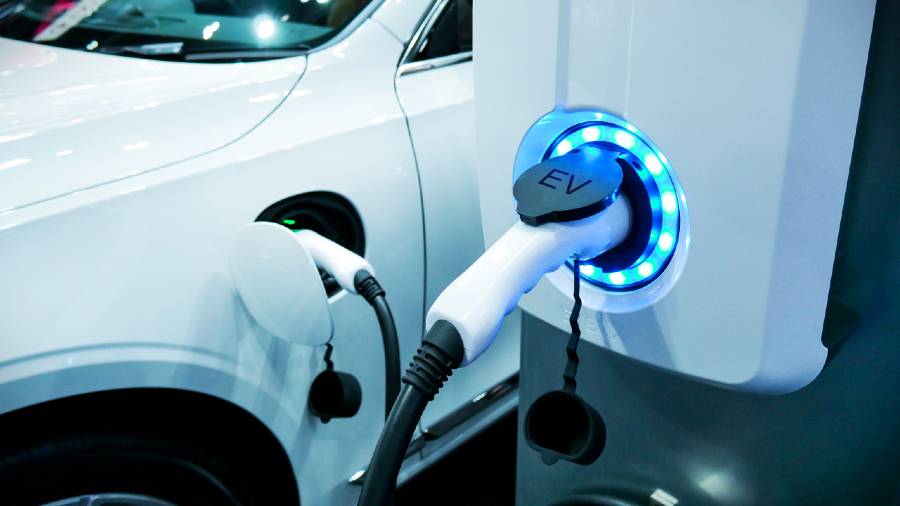The urban transportation landscape is undergoing a revolutionary transformation driven by the urgent need for sustainable and efficient mobility solutions. At the heart of this transformation is the rapid emergence of electric vehicles (EVs), including electric motorcycles, which promise to redefine the way we navigate city streets. This article delves into the evolution of urban transportation, spotlighting electric mobility’s pivotal role in shaping tomorrow’s cities.
Table of Contents
The Surge of Electric Vehicles in Urban Landscapes
Urban centers worldwide are witnessing an unprecedented surge in the adoption of electric vehicles. This shift is not merely a trend but a necessary response to the growing concerns over air pollution, fossil fuel dependency, and the global push for green initiatives. Electric cars, buses, and motorcycles are becoming increasingly visible on our roads, heralding a new era of clean, efficient urban transport. Government incentives, including subsidies, tax exemptions, and investment in charging infrastructure, are significantly accelerating this adoption process.
Furthermore, the societal shift towards environmental awareness and sustainability is driving consumer demand for greener transportation options, making electric vehicles more popular than ever. This growing demand signifies a profound change in how people view and choose their modes of transport, reflecting a collective move towards a more sustainable and eco-friendly urban future.
Advantages of Electric Motorcycles in City Traffic
Electric motorcycles, in particular, offer unique advantages in the urban setting. Their compact size and agility allow for easier navigation through congested streets, making them an ideal choice for city commuters. Moreover, their electric nature means zero tailpipe emissions, contributing significantly to the reduction of urban air pollution.
The quiet operation of electric motorcycles also helps lower noise pollution, a much-needed relief in bustling city environments. Additionally, their efficiency in energy use translates to lower operational costs, making them a cost-effective option for daily commuting. The ease of charging, often possible with standard electrical outlets, further enhances their convenience, reducing the need for frequent visits to fuel stations and promoting a seamless integration into the urban lifestyle.
How EVs and Electric Motorcycles are Changing Urban Planning
The rise of electric mobility is compelling city planners to rethink urban infrastructure. The need for widespread EV charging stations has become apparent, leading to the integration of charging networks in public spaces, parking lots, and residential areas. Additionally, the compact nature of electric motorcycles is influencing parking design, with cities now considering more space-efficient parking solutions to accommodate these vehicles. This shift towards electric mobility is about adapting to new types of vehicles and embracing a more sustainable and efficient urban future.
The Role of Technology in Enhancing EV Efficiency
Technological advancements play a crucial role in enhancing the appeal of electric vehicles. Battery technology, for example, has seen significant improvements, offering longer ranges and shorter charging times, which are crucial for the practical daily use of EVs in urban environments. Regenerative braking systems, which recover energy usually lost during braking, further extend the range of EVs, making them even more efficient and sustainable for city driving.
Smart connectivity features enable real-time monitoring of battery levels and nearby charging stations, enhancing the user experience. Moreover, advancements in lightweight materials and aerodynamic design are contributing to increased energy efficiency, allowing EVs to travel further on a single charge. Integration with renewable energy sources, like solar panels, is beginning to emerge as a viable option for charging EVs, promising a future where vehicles are powered by clean, sustainable energy.
Environmental Impacts of the Shift Towards Electric Mobility
The environmental benefits of transitioning to electric mobility are profound. By reducing reliance on fossil fuels, electric vehicles help lower greenhouse gas emissions, combatting climate change. The switch to electric motorcycles and cars also significantly reduces noise pollution, contributing to quieter, more serene urban environments. Moreover, the decreased demand for oil reduces the environmental damage from oil extraction and spills, further protecting ecosystems and biodiversity. This holistic improvement in environmental health underscores electric mobility’s critical role in forging a sustainable future, emphasizing its importance beyond just urban settings to global ecological well-being.
Legal Challenges and Opportunities for Electric Motorcycles
As electric motorcycles gain popularity, legal frameworks are evolving to accommodate these new modes of transportation.
- Helmet and Safety Gear Regulations: Ensuring that riders are adequately protected by law, including the use of helmets specifically designed for electric motorcycle riders, which might integrate communication and navigation systems.
- Noise Regulations: Electric motorcycles are much quieter than their gasoline counterparts, which could necessitate updates to noise regulations to recognize the safety implications of quieter vehicles on the roads.
- Insurance and Liability: Establishing clear guidelines for insurance companies on assessing risk and determining premiums for electric motorcycles, which might differ from traditional motorcycles due to their technology and usage patterns.
- Rider Certification and Training: Develop specialized training programs for electric motorcycle riders to address these vehicles’ unique handling characteristics and performance features.
- Lane Splitting (or Filtering): While controversial, lane splitting can reduce traffic congestion and is seen by some as a benefit of motorcycle use in urban areas. Legal recognition and regulation of lane splitting, particularly for electric motorcycles, could further promote their adoption by ensuring rider safety and smoothing traffic flow.
- Battery Disposal and Recycling: Implementing regulations to ensure the environmentally responsible disposal and recycling of electric motorcycle batteries, addressing concerns over battery life cycle and sustainability.
- Access to HOV Lanes: Considering the access of electric motorcycles to High Occupancy Vehicle (HOV) lanes as an incentive for adoption, similar to the allowances made for electric cars in some regions.
Addressing these legal challenges is crucial for the successful integration of electric motorcycles into urban mobility frameworks. By creating informed and supportive legal structures, cities can unlock the full potential of electric motorcycles to contribute to a more sustainable, efficient, and safe transportation system.
Future Trends: Autonomous Vehicles and Smart City Integration
Looking ahead, the integration of autonomous vehicle technology and smart city infrastructure holds the promise of further revolutionizing urban mobility. Autonomous electric motorcycles and cars, equipped with advanced sensors and AI, could navigate city streets with unprecedented efficiency and safety. In smart cities, interconnected vehicles and traffic systems could optimize traffic flow, reduce congestion, and enhance the overall urban living experience.
The future of urban mobility is electric. As cities strive for sustainability and efficiency worldwide, electric vehicles and motorcycles stand at the forefront of this transformative movement. The shift towards electric mobility is not without its challenges, requiring significant advancements in technology, infrastructure, and legal frameworks. However, the potential benefits—reduced environmental impact, enhanced urban living, and the promise of smart, autonomous transportation—make the pursuit of electric urban mobility an exciting and essential endeavor. As we navigate the roads of today, the electric vehicles of tomorrow promise a cleaner, more efficient, and more sustainable path forward for urban transportation.











